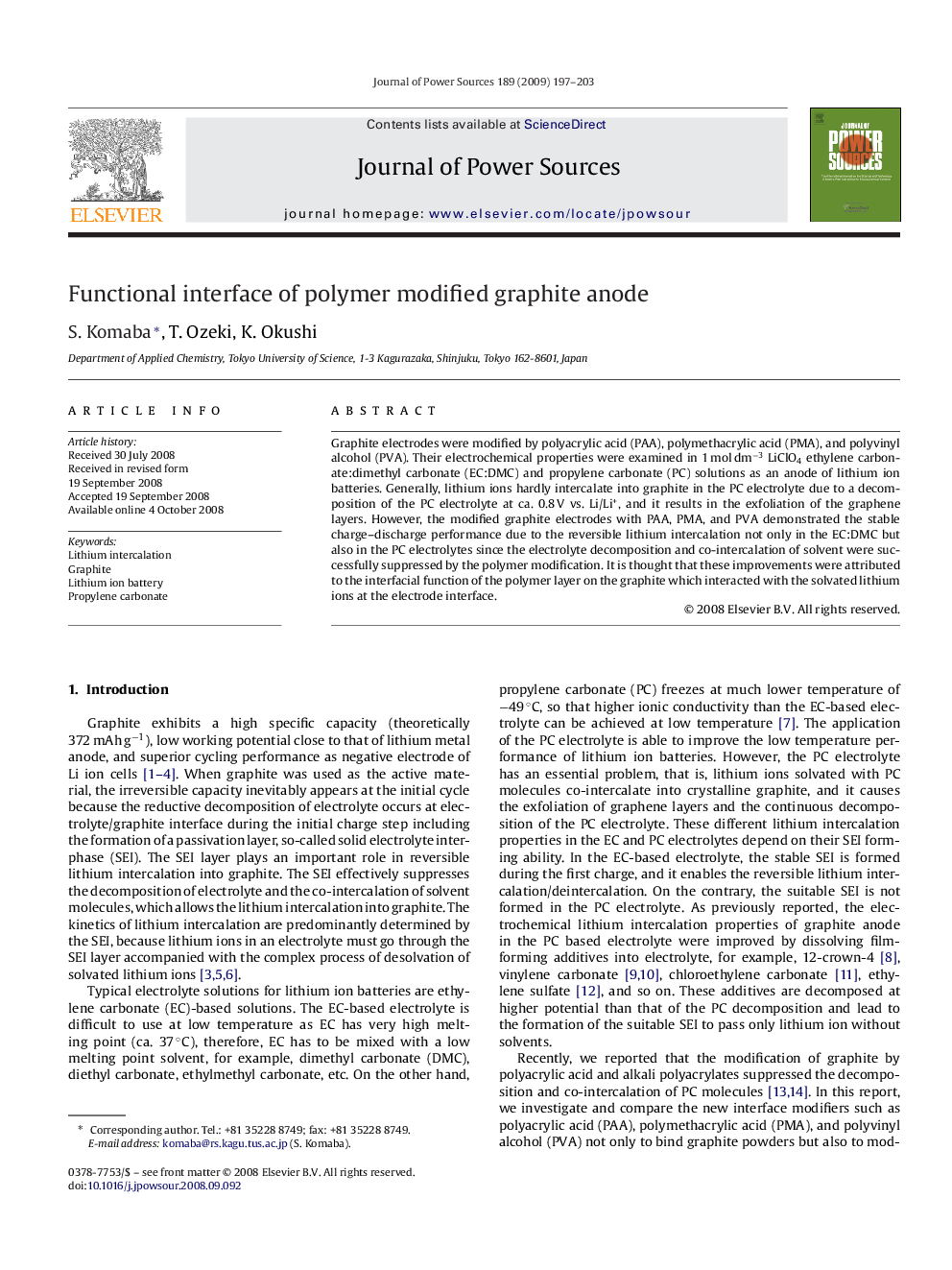| Article ID | Journal | Published Year | Pages | File Type |
|---|---|---|---|---|
| 1291173 | Journal of Power Sources | 2009 | 7 Pages |
Graphite electrodes were modified by polyacrylic acid (PAA), polymethacrylic acid (PMA), and polyvinyl alcohol (PVA). Their electrochemical properties were examined in 1 mol dm−3 LiClO4 ethylene carbonate:dimethyl carbonate (EC:DMC) and propylene carbonate (PC) solutions as an anode of lithium ion batteries. Generally, lithium ions hardly intercalate into graphite in the PC electrolyte due to a decomposition of the PC electrolyte at ca. 0.8 V vs. Li/Li+, and it results in the exfoliation of the graphene layers. However, the modified graphite electrodes with PAA, PMA, and PVA demonstrated the stable charge–discharge performance due to the reversible lithium intercalation not only in the EC:DMC but also in the PC electrolytes since the electrolyte decomposition and co-intercalation of solvent were successfully suppressed by the polymer modification. It is thought that these improvements were attributed to the interfacial function of the polymer layer on the graphite which interacted with the solvated lithium ions at the electrode interface.
